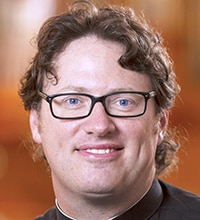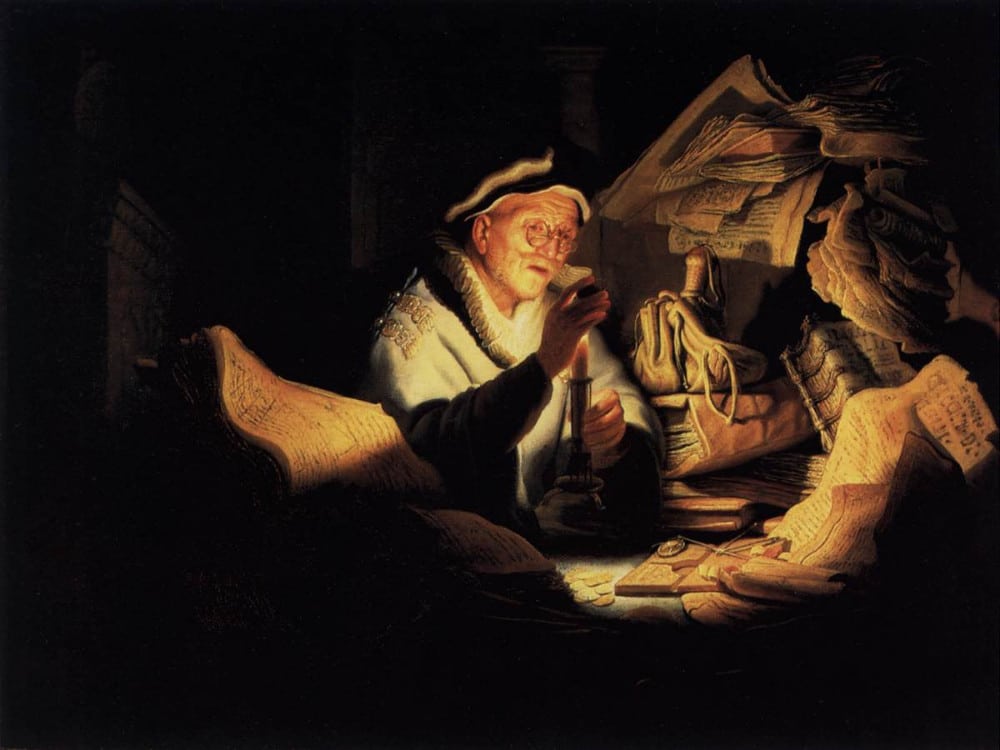
That’s what this question feels like; the whole scene is busy and suffocating and random. That’s why I think the first thing Jesus asks is why this brother thinks he’s anyone to judge (cf. Lk 12:14). It’s a frenetic scene; yet still, Jesus makes it a memorable teachable moment. He takes time with this brother even though it’s such a random, worldly question — a ridiculous question, when you think that here is the Christ right in front of them, and all this brother can think about is some silly inheritance! Yet Jesus still takes time with him. He tries to teach him. And that’s because that’s who Jesus is. He is a teacher — the Teacher of teachers, in fact.
| July 31 – 18th Sunday in Ordinary Time |
|---|
|
Ecc 1:2; 2:21-23 |
Such is the context of the parable of the rich fool. It’s the story of a wealthy man — not a bad man at all — who looked at his wealth and, apparently ready to retire, was filled with joy. He’s got so much stuff; he’s set “for many years” (Lk 12:19). He’s a happy man. He’s grateful. As I said, there’s no indication he’s a bad man at all. It’s just that he is a fool, Jesus said. Not a bad person, just a fool. But why?
Because his perspective was entirely worldly. The extent of his love, his hope, his imagination was merely those miserable “many years” in which he had enough stuff (so he thought) to keep him comfortable in this world. He was a fool because he failed to consider the eternal. Whatever he believed, whatever his religion, practically speaking, he was an atheist. For he failed to treat God and heaven as anything real. He failed to live his life as if death was merely a change and not an end. He failed to live life as life really is — as on a continuum with heaven. He didn’t order his life or his worldly goods toward the reality of heaven. His values were immanent, utterly earthly. That’s why he was greedy and a fool.
But what would it look like not to be a fool? What would it look like to be “rich in what matters to God” (Lk 12:21)? Jesus will answer this question several ways. For me, I’ve always been struck by how Jesus puts it in a later parable: “I tell you, make friends for yourselves with dishonest wealth, so that when it fails, you will be welcomed in eternal dwellings,” he said (Lk 16:9). But what does that mean? It means that what you and I ought to do with our wealth (great or small) is to “make friends.” That is, we’re to make friends with the poor, with those Jesus tells us to love. We’re to make friends with one another. Through the practice of charity, we’re to “make friends” and, by that, begin heaven now. That’s what we’re to do with our wealth, great and small. We’re not foolishly to hoard what we have; rather, we’re to be like Zacchaeus, the converted tax collector (cf. Lk 19:1-10). If we’re Christians, we’re to have changed into generous givers — charitable people and not greedy hoarders. That’s how we avoid being fools. By living charitably.
Which is, of course, the urgent question. Do you live like this? Are you generous? Or would Jesus call you a fool? Be honest, no matter how painful the question is for you. Because, really, it’s a question of salvation (cf. 19:9). It’s serious. And also because Jesus loves you and wants to do so much good through you. If we’ll just give up our foolishness and love.
Father Joshua J. Whitfield is pastor of St. Rita Catholic Community in Dallas and author of “The Crisis of Bad Preaching” (Ave Maria Press, $17.95) and other books.





